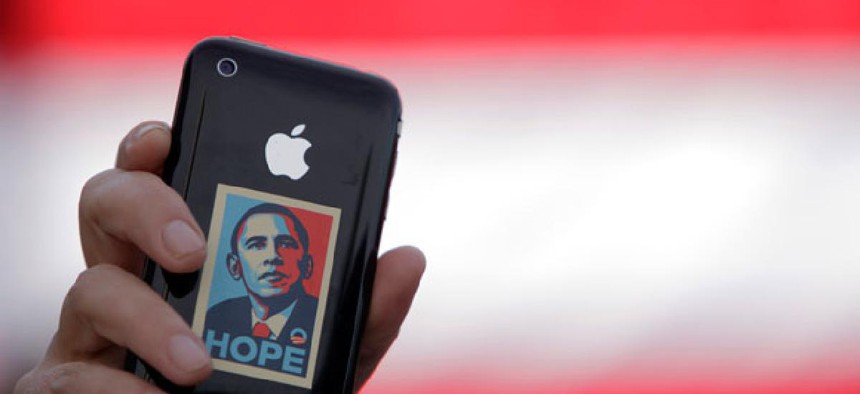How the iPhone 5 could help re-elect Obama

An Obama supporter holds up an iPhone during a 2008 rally. Jae C. Hong/AP file photo
Economists estimate the new phone, which Apple will release soon, could add between a quarter and a half of a percentage point to the country's GDP.
If the iPhone 5 boosts the GDP as much as this JP Morgan analyst says it will, Barack Obama might not have to worry about the economy crippling his chances against Mitt Romney. The new phone, which Apple will announce this week and release shortly thereafter, could add between a quarter and a half of a percentage point, J.P Morgan's chief U.S. economist Michael Feroli told The Wall Street Journal's Sudeep Reddy. Election modeling using the current GDP and inflation data has found that Obama will either find himself in a close election or in "serious trouble," as The New York Times's Jeff Sommer explains. "The low inflation rate is a plus for the president, while the mediocre G.D.P. growth rate is a problem," he wrote. We won't have the actual GDP figure until after the election, which some might argue means the iPhone came out too late. But, if Apple has a bonanza blow-out sales of 8 million phones, as Feroli predicts, the spillover effect of this stimulus will happen much sooner. Retail sales will pick up, the economy will perk up, people will feel better. Voters might now know the exact GDP figure in our heads, but they will know in their hearts. Of course, this prediction that the "iPhone 5 could singlehandedly rescue the U.S. economy," as The Washington Post's Brad Plumer puts it, sounds a little hyperbolic in the first place. The iPhone 4S, which had record setting sales, only lifted GDP by 0.2 percent, which is still exciting for our economy, but maybe not enough for an incumbent's reelection effort.


